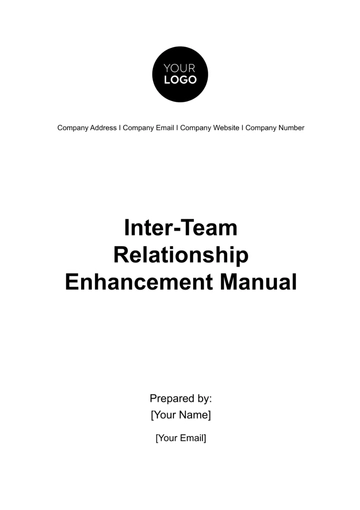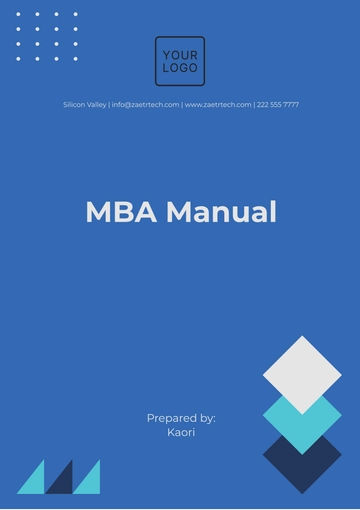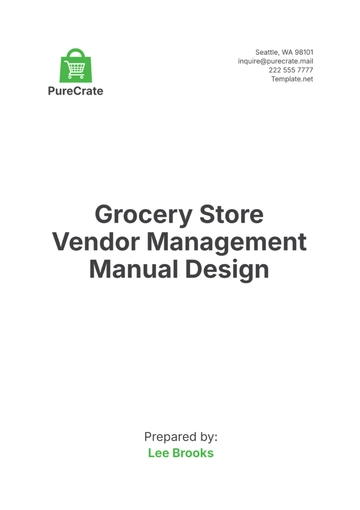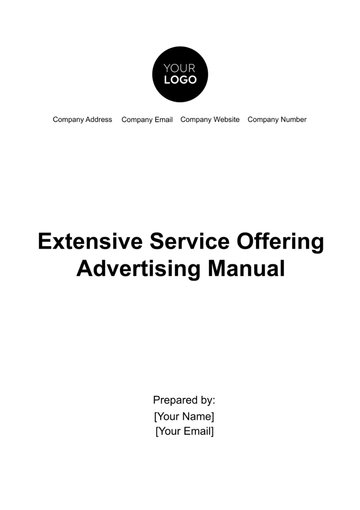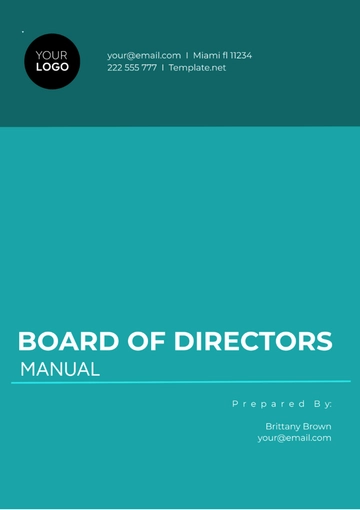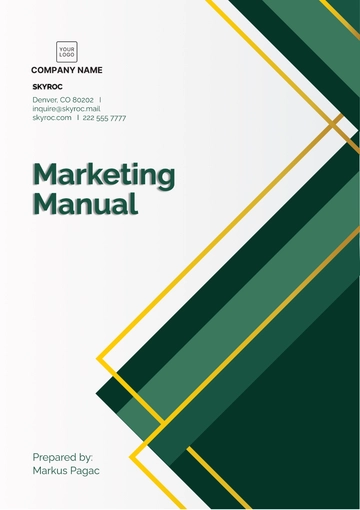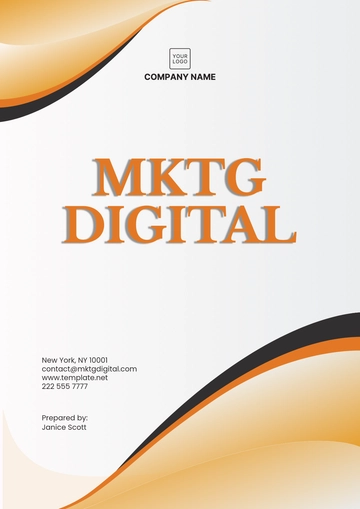Free Sales Manual for Closing International Deals
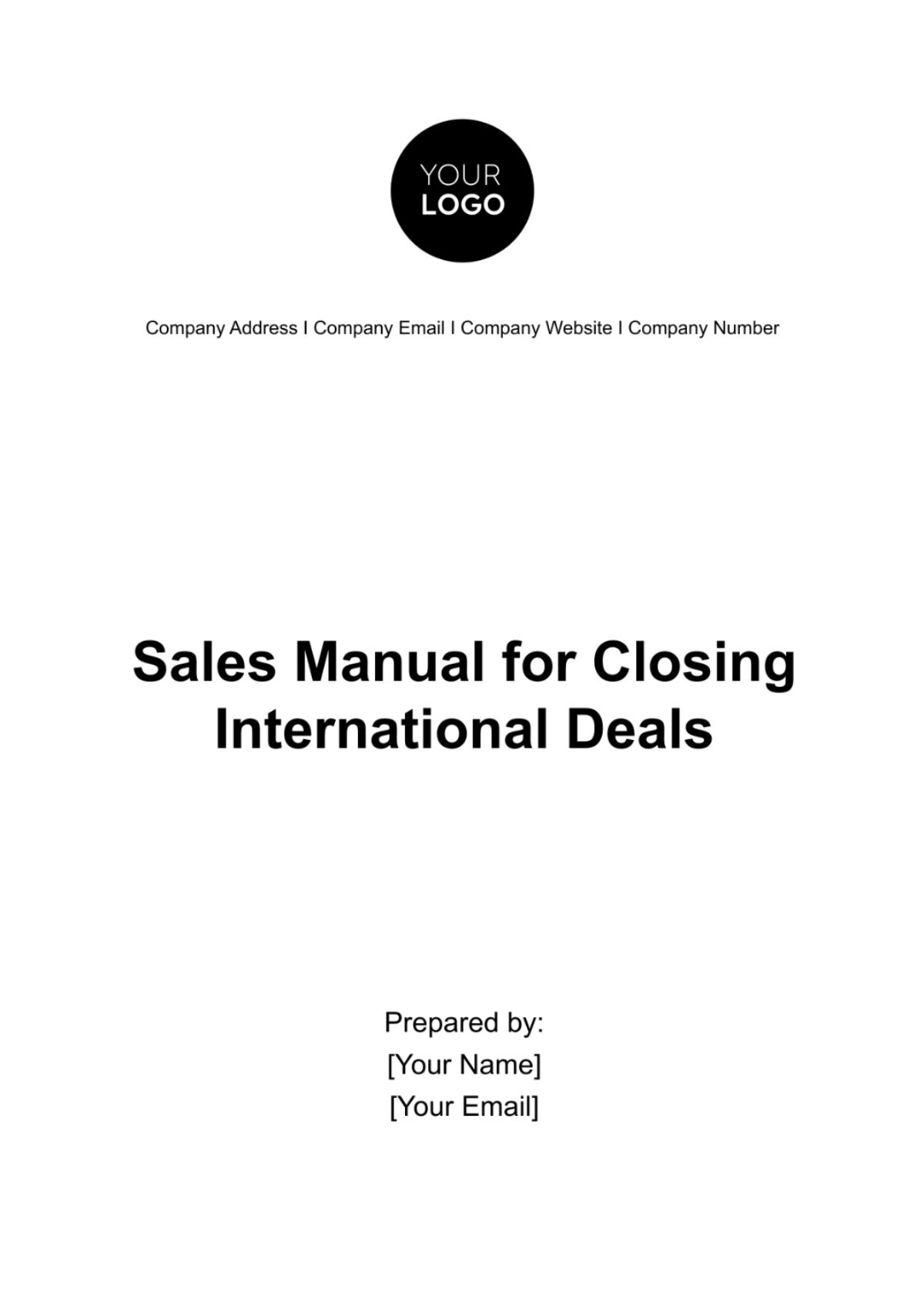
I. Introduction to International Sales
A. Overview
Purpose of the Manual
The primary aim of this manual is to equip [Your Company Name] sales representatives with the knowledge and strategies necessary to successfully navigate and close deals in international markets. It serves as a comprehensive guide to understanding the unique challenges and opportunities associated with conducting business on a global scale.
Importance of International Sales
International sales play a crucial role in the growth and expansion of [Your Company Name]. By tapping into international markets, we can diversify our revenue streams, mitigate risks associated with regional economic fluctuations, and access new pools of potential customers. Additionally, expanding globally enhances our brand presence and competitiveness in the marketplace.
Target Audience
This manual is designed for sales representatives and teams who are involved in or responsible for conducting international sales negotiations on behalf of [Your Company Name]. It provides valuable insights and strategies tailored to meet the specific needs and challenges of closing deals in diverse cultural and regulatory environments.
II. Understanding International Markets
A. Market Research
Conducting Market Analysis
Before entering any international market, thorough market analysis is essential to understand the unique characteristics and dynamics of the target market. This involves gathering data on factors such as market size, growth trends, customer demographics, cultural preferences, regulatory requirements, and competitive landscape. The following table outlines key components of market analysis:
Market Analysis Components
Description
Market Size
Estimate of the total addressable market (TAM) in terms of revenue and volume.
Growth Trends
Analysis of historical and projected market growth rates and trends.
Customer Demographics
Understanding the profile of target customers including age, gender, income level, and preferences.
Cultural Preferences
Insight into cultural norms, values, and preferences that may influence buying behavior.
Regulatory Requirements
Identification of legal and regulatory frameworks governing business operations in the target market.
Competitive Landscape
Assessment of key competitors, their market share, strengths, weaknesses, and strategies.
Cultural Considerations
Cultural differences can significantly impact the success of international sales efforts. Sales representatives must be sensitive to cultural nuances and adapt their approach accordingly to build rapport and trust with prospective clients. Some key cultural considerations include:
Communication style: Understanding whether direct or indirect communication is preferred in the target culture.
Business etiquette: Familiarity with appropriate greetings, gestures, and forms of address.
Decision-making processes: Awareness of hierarchical structures and group dynamics that influence decision-making.
Negotiation styles: Recognition of negotiation tactics and approaches common in the target culture.
Legal and Regulatory Framework
Compliance with local laws and regulations is essential for conducting business in international markets. Sales representatives must be aware of:
Import/export regulations: Understanding tariffs, duties, and documentation requirements for cross-border transactions.
Contract laws: Familiarity with contract formation and enforcement procedures in the target jurisdiction.
Intellectual property rights: Protection of intellectual property assets and adherence to copyright, trademark, and patent laws.
Data privacy regulations: Compliance with data protection laws and regulations governing the collection, storage, and transfer of personal data.
III. Sales Strategies for International Markets
A. Preparing Sales Proposals
Tailoring Proposals to International Audience
Adapting proposals to align with the cultural preferences, business practices, and language of the target international audience is crucial for success. Key considerations include:
Language: Ensuring proposals are translated accurately and localized to resonate with the target audience.
Cultural nuances: Incorporating cultural references and examples that demonstrate an understanding of the client's cultural context.
Value proposition: Clearly articulating how the proposed solution addresses the specific needs and challenges of the international client.
Moreover, providing case studies or testimonials from clients in similar international markets can enhance credibility and demonstrate the effectiveness of [Your Company Name] solutions in diverse contexts.
Highlighting Value Proposition
Emphasizing the unique value proposition of [Your Company Name] products or services is essential for differentiation in competitive international markets. Sales representatives should focus on:
Key benefits: Clearly articulating the tangible and intangible benefits that [Your Company Name] offerings deliver to international clients.
Competitive advantage: Highlighting features, functionalities, or advantages that set [Your Company Name] apart from competitors.
ROI analysis: Providing data or metrics that quantify the return on investment (ROI) or cost savings associated with implementing [Your Company Name] solutions.
Additionally, illustrating how [Your Company Name] solutions address specific pain points or challenges faced by international clients can help establish credibility and build trust in the sales process.
B. Building Relationships
Establishing Communication Channels
Effective communication is the cornerstone of successful international sales. Sales representatives should leverage various communication channels to connect with international prospects, including:
Email: Sending personalized emails tailored to the recipient's preferences and needs.
Phone calls: Conducting regular phone calls to discuss proposals, address concerns, and provide updates on the sales process.
Video conferencing: Hosting virtual meetings to facilitate face-to-face interactions and build rapport with international clients.
Social media: Engaging with prospects on professional networking platforms to share relevant content and nurture relationships.
Furthermore, adapting communication styles and etiquette to align with the cultural norms of the target audience can help foster trust and understanding in international sales interactions.
Cultivating Trust
Building trust is essential for successful international sales relationships. Sales representatives should focus on:
Transparency: Providing accurate information and setting realistic expectations throughout the sales process.
Reliability: Demonstrating consistency and follow-through in delivering on promises and commitments.
Responsiveness: Being proactive and responsive to client inquiries, concerns, and requests for information.
Additionally, establishing personal connections and investing time in understanding the needs and priorities of international clients can help strengthen trust and loyalty over time.
IV. Closing International Deals
A. Finalizing Contracts
Legal Considerations
Before finalizing contracts in international deals, it is imperative to ensure compliance with relevant legal and regulatory requirements. Key legal considerations include:
Jurisdiction: Determining the applicable laws and jurisdiction governing the contract, especially in cross-border transactions.
Contractual terms: Drafting clear and comprehensive contractual terms that outline the rights, obligations, and responsibilities of both parties.
Dispute resolution: Including provisions for dispute resolution mechanisms such as arbitration or mediation to resolve potential conflicts efficiently.
Moreover, seeking legal advice from experts familiar with international business laws and regulations can help mitigate legal risks and ensure the enforceability of contracts in international markets.
Contract Terms and Conditions
Negotiating and finalizing contract terms and conditions require careful consideration of various factors to achieve a mutually beneficial agreement. Sales representatives should focus on:
Pricing and payment terms: Negotiating competitive pricing structures and flexible payment terms that meet the financial needs of international clients.
Delivery and logistics: Clarifying expectations regarding product delivery, shipping methods, and logistics arrangements to ensure timely and efficient fulfillment of orders.
Warranties and guarantees: Specifying warranties, guarantees, or service level agreements (SLAs) to provide assurance of product quality and performance to international clients.
Additionally, documenting any special provisions or agreements reached during negotiations and obtaining signatures from authorized representatives of both parties are essential steps in finalizing international contracts.
B. Handling Objections
Addressing Concerns
During the negotiation process, international clients may raise objections or express concerns about various aspects of the proposed deal. Sales representatives should be prepared to:
Listen actively: Paying close attention to client concerns and demonstrating empathy and understanding.
Clarify misunderstandings: Providing clear explanations or additional information to address any misconceptions or uncertainties.
Offer solutions: Presenting alternative options or solutions to overcome obstacles and meet the needs of international clients.
Moreover, maintaining a positive attitude and reframing objections as opportunities to provide value and find mutually beneficial solutions can help build credibility and trust in the sales process.
Providing Solutions
Effectively addressing client objections requires a proactive approach and a willingness to collaborate on finding solutions. Sales representatives should:
Collaborate internally: Consulting with relevant stakeholders or departments within [Your Company Name] to explore potential solutions or workarounds to address client concerns.
Customize offerings: Tailoring product or service offerings to better align with the specific needs and preferences of international clients.
Demonstrate value: Reinforcing the value proposition of [Your Company Name] solutions and illustrating how they can address the underlying needs or challenges raised by international clients.
Additionally, following up with clients after providing solutions and addressing objections can help reassure them of [Your Company Name]'s commitment to their success and facilitate the closure of international deals.
V. Post-Sale Support and Follow-Up
A. Customer Service
Providing Ongoing Support
[Your Company Name] understands that providing exceptional customer service is crucial for maintaining satisfaction and loyalty among international clients. Our commitment to ongoing support includes:
Product Training: Offering comprehensive training sessions or materials to ensure international clients fully understand how to use our products or services effectively.
Proactive Outreach: Anticipating potential issues or concerns and reaching out to international clients proactively to offer assistance and prevent problems before they arise.
Dedicated Support Channels: Providing dedicated communication channels, such as international hotline numbers or language-specific support email addresses, for quick and efficient resolution of queries or issues.
Knowledge Base: Maintaining an extensive knowledge base or FAQ section on our website with answers to common questions and troubleshooting guides for international clients to access self-service support.
By prioritizing ongoing support and accessibility, [Your Company Name] aims to build trust and confidence among international clients, reinforcing our commitment to their success and satisfaction.
Feedback Collection
[Your Company Name] recognizes the value of soliciting feedback from international clients to drive continuous improvement and innovation. Our feedback collection efforts encompass:
Customized Surveys: Designing tailored surveys for international clients to gather insights into their experiences, satisfaction levels, and areas for improvement.
Advisory Boards: Establishing advisory boards or customer councils comprised of international clients to provide strategic input, share best practices, and shape future product developments.
Voice of the Customer Programs: Implementing formal programs to capture and analyze customer feedback from various touchpoints, including sales interactions, customer support engagements, and product usage data.
Feedback Analysis: Utilizing advanced analytics tools and techniques to analyze feedback data, identify trends, and prioritize action items for enhancing the international client experience.
By actively listening to the voices of our international clients and incorporating their feedback into our decision-making processes, [Your Company Name] demonstrates its commitment to continuous improvement and customer-centricity.
B. Relationship Management
Maintaining Relationships
Building enduring relationships with international clients is a strategic imperative for [Your Company Name]. Our relationship management initiatives include:
Strategic Account Planning: Collaborating with international clients to develop personalized account plans that align with their business objectives and growth aspirations.
Executive Sponsorship: Establishing executive sponsorships at the highest levels of [Your Company Name] to cultivate strong, top-down relationships with key international clients and foster strategic partnerships.
Joint Business Reviews: Conducting regular joint business reviews with international clients to assess progress, review performance metrics, and identify opportunities for collaboration and mutual value creation.
Relationship Scorecards: Implementing relationship scorecards or satisfaction metrics to track the health of relationships with international clients and identify areas for improvement.
By investing in relationship-building efforts and prioritizing collaboration and partnership with international clients, [Your Company Name] aims to foster loyalty, advocacy, and long-term success.
Upselling and Cross-Selling
Identifying and capitalizing on upsell and cross-sell opportunities with international clients are integral components of [Your Company Name]'s revenue growth strategy. Our approach includes:
Solution Bundling: Packaging complementary products or services together to create compelling value propositions and drive incremental sales with international clients.
Lifecycle Marketing: Implementing targeted marketing campaigns or communications tailored to specific stages of the international client lifecycle to promote relevant upsell or cross-sell offerings.
Value-Added Services: Introducing value-added services, such as premium support packages, training programs, or consulting services, to enhance the value proposition and drive additional revenue streams with international clients.
Customer Success Programs: Establishing dedicated customer success programs or success managers to proactively identify opportunities for upselling or cross-selling based on international clients' evolving needs and priorities.
By adopting a proactive and consultative approach to upselling and cross-selling, [Your Company Name] aims to maximize customer lifetime value and deepen relationships with international clients over time.
VI. Conclusion
A. Summary
Recap of Key Points
In summary, this comprehensive manual has equipped [Your Company Name] sales representatives with the knowledge, strategies, and best practices necessary to excel in closing deals and fostering success in international markets. From market research and cultural considerations to negotiation techniques and post-sale support, each section has provided actionable insights and guidance to navigate the complexities of global business environments effectively.
Next Steps
As [Your Company Name] sales representatives implement the strategies and techniques outlined in this manual, we encourage them to remain adaptable, proactive, and customer-centric in their approach to international sales. By leveraging the insights and resources provided in this manual, our sales teams can drive continued growth, innovation, and success in closing international deals and building lasting relationships with clients worldwide.
- 100% Customizable, free editor
- Access 1 Million+ Templates, photo’s & graphics
- Download or share as a template
- Click and replace photos, graphics, text, backgrounds
- Resize, crop, AI write & more
- Access advanced editor
Achieve success in international sales with our Sales Manual for Closing International Deals Template from Template.net. This editable and customizable resource provides comprehensive guidance on navigating the complexities of global markets. Utilize our Ai Editor Tool to tailor the manual to your unique business needs, ensuring effective communication and negotiation strategies across borders. Empower your team to secure international deals with confidence using this essential resource.
